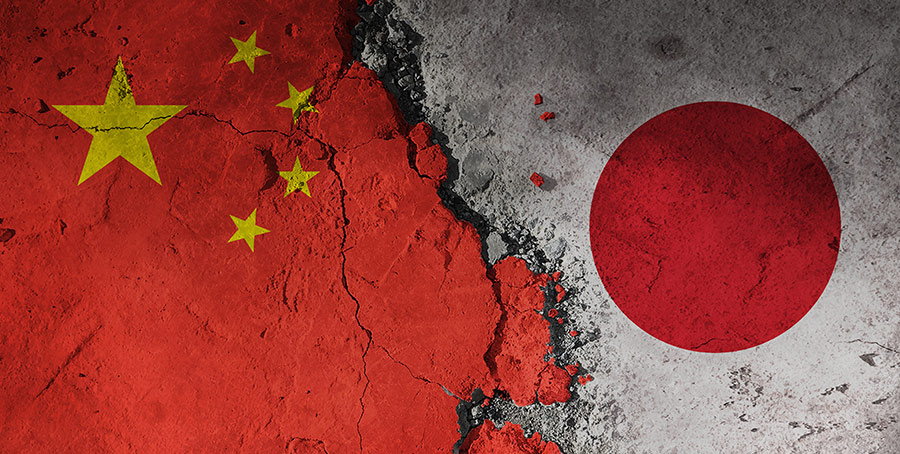We were shocked to learn the reason why the number of Chinese people in Japan continues to increase!
At first, only the elite came? The history of Chinese people living in Japan
The number of Chinese people living in Japan is increasing every day. They are often associated with buying multi-million-yen tower blocks and “explosive buying”, but the population is actually around 820,000 (Immigration Services Agency, end of 2023), which is about the same as the population of Yamanashi and Saga prefectures.
The largest number of Chinese people live in Tokyo, where there are over 250,000. If you live in Tokyo, it’s almost impossible not to see Chinese people, whether at work or in your neighborhood. So, why and when did the number of Chinese people living in Japan increase so much? Let’s take a brief look at the history of their arrival in Japan.
The first Chinese people to come to Japan in earnest were those who came in the 1980s, following China’s reform and opening up in 1978.
At the time, there were many super-elite students selected by the Chinese government, such as government-sponsored students, and some of the people who came to Japan at that time were told by the government that they would be sent to either Germany or Japan to study in order to become useful human resources for the country in the future, and as a result, they ended up coming to Japan.
Only a very small number of elite students, who had no problems with their family environment or political views, were allowed to come to Japan. In the 2000s, the number of ‘pre-college students’ increased rapidly. Pre-college students’ is a status of residence given to foreign students enrolled in Japanese language schools and special training colleges in the early 2000s. They went to school during the day and worked part-time at factories and other places at night.
Some private universities in rural areas, which were struggling financially, accepted large numbers of foreign students through Chinese agents, but some of these students did not attend university, and either disappeared or went to work in other places, which developed into a social problem.
In addition to this situation becoming clear, the number of crimes committed by Chinese people increased rapidly in the 1990s and early 2000s. According to the Tokyo Metropolitan Police Department’s White Paper on Police, Chinese nationals were by far the most frequently arrested foreigners in 2007.
With over 10,000 crimes committed each year, the image of Chinese people held by Japanese people deteriorated. Some people may remember the “family of four murder case” committed by three Chinese students in Fukuoka Prefecture in 2003.
At that time, China’s GDP was less than one-tenth of Japan’s. Even the elite foreign students were struggling students who had to work hard at construction sites and other places to make ends meet. At the time, the watchword that was frequently heard was “Japan-China friendship”. There were many Japanese people who took care of these struggling students, sharing their belongings and food with them.
However, in the 1990s, the situation changed completely. Chinese people began to flock to Japan with the aim of finding work. Some of them came to Japan on smuggled boats, guided by brokers known as “snakeheads” based in Fujian Province.
The number of “rich Chinese people coming to Japan” is increasing by the tens of thousands
However, the number of Chinese living in Japan doubled from around 150,000 in 1990 to around 335,000 in 2000. By 2010, this number had doubled again to around 680,000.
The reason for this is that Chinese people have become economically prosperous, and it is now possible for anyone to come to Japan to study, not just the chosen elite, as long as they have the money to pay for it.
In the past, foreign students would come to Japan clutching pots and pans and a small amount of cash (many people would have around 20,000 yen), but these days they come to Japan with only a UnionPay card (a Chinese credit card) and a computer.
One of the reasons for this is that it has become relatively easy to obtain a student visa, and it has become easier to cross the sea.
Not only foreign students, but also the number of people coming to Japan for work or to marry Japanese people has increased. Around 2015, the UnionPay card was replaced by smartphones. The number of migrant workers has decreased, and it was around this time that more people began to think that they could earn more money in China than in Japan.
Social networking services such as China’s Weibo and Weixin also developed. In 2015, the term “bakugai” (explosive buying) won the Youcan New Word and Popular Word Grand Prize. For people living in China, which had already overtaken Japan’s GDP, Japan became a “shopping paradise where you can find everything from cheap to high-quality products”.
The Chinese living in Japan were the ones who supported this in the background. They bought large quantities of Japanese products on behalf of others as part-time work or as a job, and then sent them back to China, making a tidy profit.
After the coronavirus pandemic, from around 2022, there was a sudden increase in the number of wealthy people moving to Japan (the Chinese word for this is “run”, which also means “migration” or “emigration”). The number of people coming to Japan is unknown, although it is partially introduced in the new book “China in Japan”.
However, according to a Chinese administrative scrivener, there were about 17,800 people who obtained business management visas (end of 2023). Since it is possible to come to Japan with other visas, it is thought that it will be more than 20,000 people. Wealthy people with property have started to buy real estate in Japan, not as an “investment”, but as a “home”. The reasons they are “flourishing” are various. They have become fed up with the zero-corona policy and have given up on China, they are worried that the government will confiscate their property, they don’t want their children to learn about Xi Jinping’s thought, etc.
Even though they can’t speak Japanese, they come to Japan relying on their acquaintances and friends who are Chinese living in Japan. From now on, we may see a time when large numbers of Chinese people come to Japan not for the purposes of “studying abroad”, “finding work” or “working away from home”, but simply to escape from China.
Friday Digital












